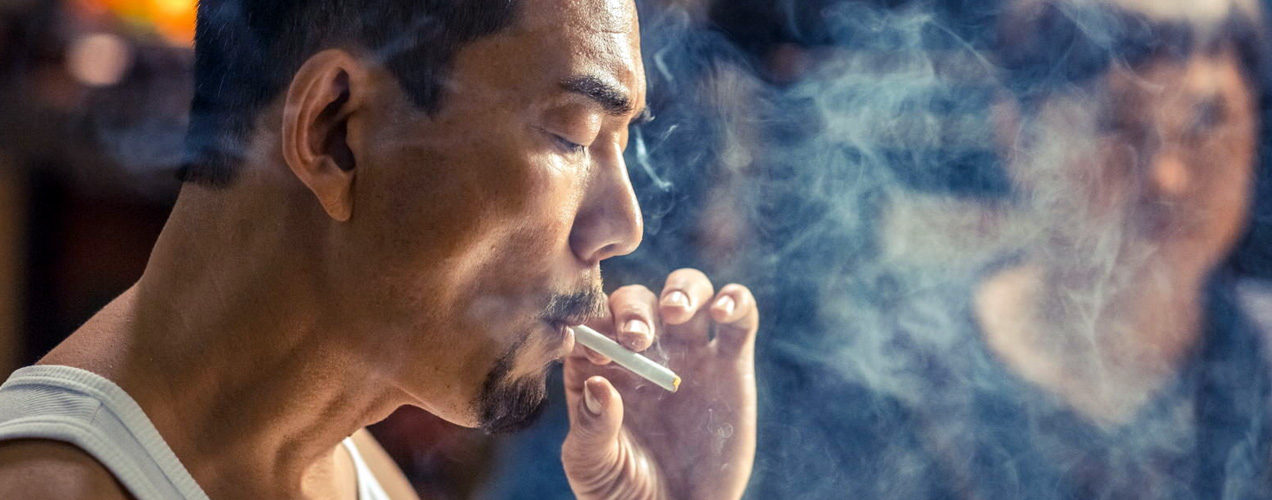2016 / Johnnie To > The future of post-Johnnie To cinema in Hong Kong has gotten off to a promising start with his proteges already showing a grasp of the master’s technical expertise and sound fundamentals. While the three individual stories don’t fully represent the tension surrounding the island’s handover to the mainland, each director’s take on the changing criminal environment is intriguing though not as fully realized as previous To films. In short, this is a lighter, shallower version of classic Hong Kong crime fare but one that is still an enjoyable watch.
Category Archives: 3.0
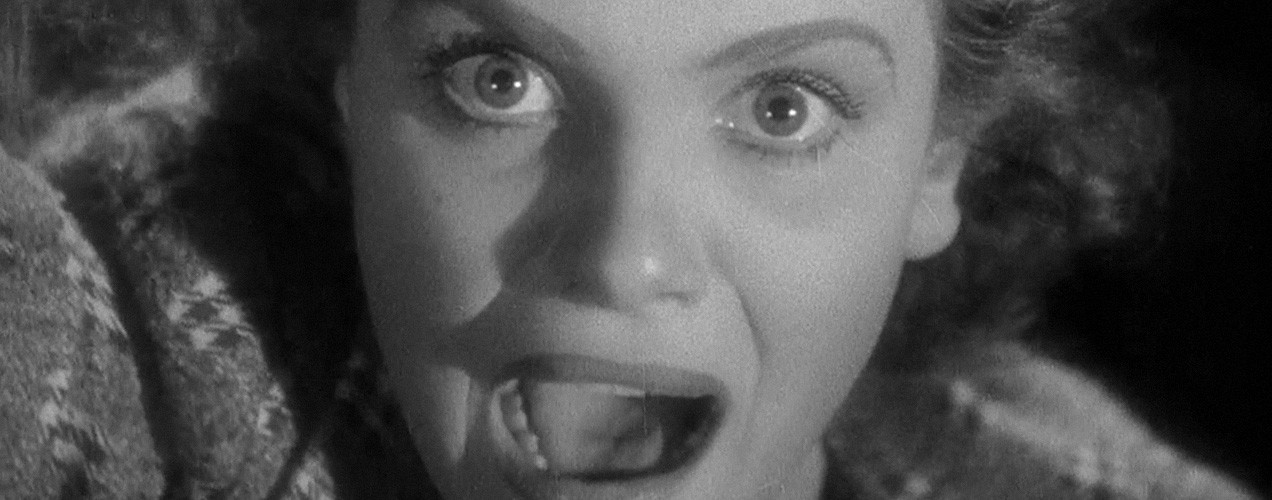
The Girl Was Young
Alfred Hitchcock / 1937 > An early Hitchcock with elements that would later be refined into his classics: A wrongly accused man on the run, a damsel who seeks to prove his innocence against conventional wisdom and a mysterious murderer lurking in the shadows. After a generic set-up, Young and Innocent, as it was known in the UK, powers through towards the climax as the leads finish their clue-hopping. Once backed against the wall, the climactic finale thrills the viewer by letting the camera tell a parallel story to unravel the mystery—a technique that has all the hallmarks of the director’s future brilliance.
SEE ALSO: Life as Fiction: Alfred Hitchcock, Ranked at Letterboxd
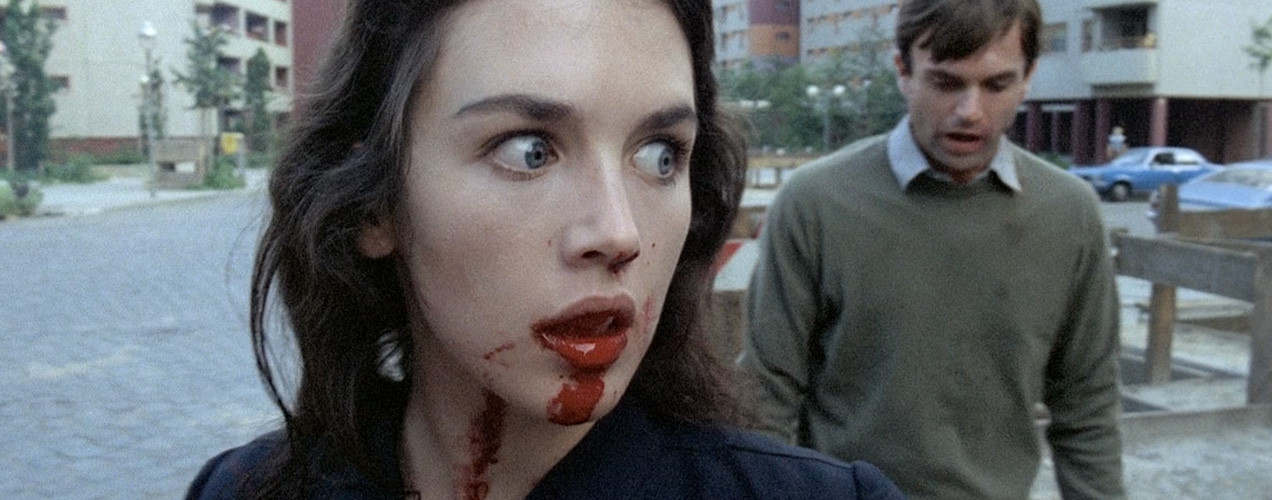
Possession
1981 / Andrzej Żuławski > There’s something about the madness of a beautiful woman whom you once loved. You know there was something in her that enticed you in the first place, and no matter how reckless she gets, that part of her gets you coming back for more. You don’t think about how it’s going to end, though you know deep inside that it won’t be well. You’re still intrigued, fascinated and find yourself going back for more.
Truth be told, I’m still pretty confused as to what it is that Żuławski has put in front of us, but I do know that in its unrelenting nature—with hints of Rosemary’s Baby and Vertigo—Isabelle Adjani’s performance alone is worth thrice the ticket price, watching her turn beauty into a mystical beast. Similar to Oshima’s take in In the Realm of the Senses, Possession is a dark tale of consumption, of passion beyond reason (or maybe of perfect reason?). It is absolute but not for everyone.
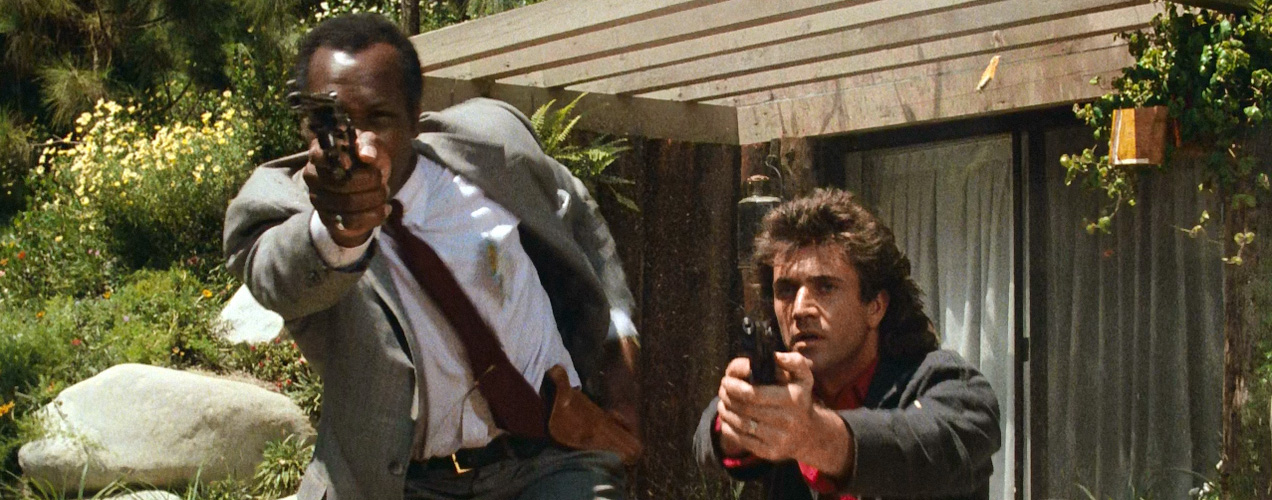
Lethal Weapon
1987 / Richard Donner > They don’t make ’em like this anymore: An 80’s buddy cop actioner with an underlying sense of humor that pervades even the most serious of moments. As such, while Lethal Weapon is damn violent, it’s also damn charming to watch Mel Gibson and Danny Glover interact and build their relationship against a backdrop of family ties, Los Angeles prostitutes and bad Christmas turkeys. We also get to witness Gary Busey’s Mr. Joshua, a villainous caricature who finds ways to progress the plot due to a dire need to impress his big, bad boss. It doesn’t always make much sense, but it works—even if it’s pretty thin.

Drug War

 2012 / Johnnie To > Remember the self-righteous Hays Code (( It ruined the ending of many great films, including the otherwise perfect Witness for the Prosecution from the incomparable Billy Wilder.)) that plagued American cinema for over thirty years from the mid-30s into the late 60s? It’s alive and well now in Hong Kong thanks to the Chinese censors. With a population of only 8 million, the island depends on the earnings from a vast mainland audience, but in order to get there, it needs to appease the bodies that control their morality. And after Felix Chong and Alan Mak of Infernal Affairs fame (the film that The Departed was based on) failed at the task with their corporate thriller Overheard, one had hopes that the great Johnnie To would succeed.
2012 / Johnnie To > Remember the self-righteous Hays Code (( It ruined the ending of many great films, including the otherwise perfect Witness for the Prosecution from the incomparable Billy Wilder.)) that plagued American cinema for over thirty years from the mid-30s into the late 60s? It’s alive and well now in Hong Kong thanks to the Chinese censors. With a population of only 8 million, the island depends on the earnings from a vast mainland audience, but in order to get there, it needs to appease the bodies that control their morality. And after Felix Chong and Alan Mak of Infernal Affairs fame (the film that The Departed was based on) failed at the task with their corporate thriller Overheard, one had hopes that the great Johnnie To would succeed.
In following up Life Without Principle, his most mediocre crime film in years, there’s ample evidence in Drug War to show that he was hamstrung by fear of censorship and general working conditions in the mainland. Gone is the tragic beauty of his Election duology and The Mission, films that are gritty, bleak but fantastic cinema due to their absurd realism—films that also could not be made with Chinese funding.
Fear not, though, Drug War is still a To film, which means it’s better than most cinema out there. The master pumps out a film a year with ease at a quality that’s unheard of. Even at its weakest points, the film is enjoyable—just not great or relatively memorable. The worst may be that we only get a couple of complex set pieces, for which To is known and much admired, and the simpler of which stands out for its efficiency and impact. But don’t compare this to the incredibly curated Exiled or the cinematic extravagance of Vengeance. In its effort to keep the story streamlined for a wider audience, Drug War misses out on too many of To’s staples and ends up brazenly two-dimensional.
The best part is Sun Honglei playing a shape shifting police captain who charms multiple sides of the coin. It’s a common plot tactic made great by his acting. Sadly, it’s the kind of performance you’d wish to see in a more memorable film. Add in the fact that nearly every other character in the film feels absurdly stock, it also devalues the performance of the seemingly overachieving Louis Koo, who still hasn’t matched his coolness factor from Accident. Again, it’s hard to not wonder if the flatness of the characters is to match the black and white moral codes of the censors. It’s frustrating to see the work of a heralded director pushed to the edge for potentially commercial purposes, but if it’s going to lead to Election 3, biting the bullet may end up being a worthy venture.

Guilty of Romance
2011 / Sion Sono > With Suicide Club and its mass schoolgirl suicides ((Watch the brilliant intro to Suicide Club.)), Sono exploded onto the international scene. But the problem that plagued that film has continued to persist: A potentially grand concept that don’t translate into a satisfactory cinematic experience. It’s not surprising that Cold Fish, my favorite of Sono’s, is less conceptual and more focused while still taking advantage of his directorial prowess. In contrast, Guilty of Romance is a desert of mediocrity with some oases of wonders sprinkled about.
At its gut, the film is trying to tell us something about the private nature of sexuality, and it starts off spectacularly with detectives discovering a murder victim whose body parts have alternatively been replaced by those of a life-size doll. Setting into motion character studies of three women, Guilty shines the most when we follow the path of a quiet housewife of a respected poet as she begins her road to self-discovery. Played by the gorgeous Megumi Kagurazaka ((Kagurazaka is now married to Sono.)), her transformation is what will resonate the most with most viewers. The details of her everyday routine, its minor shifts followed by a scene of masterwork in front of a mirror sadly shows the film peaking in the first act. As often happens in Sono’s films, things derail in a manner that some would consider abstractly brilliant while others like myself just find frustrating to no end. Guilty of Romance’s triptych of female sexuality descends into a kind of madness that makes the analysis moot at the expense of a near-rudimentary thriller finale.
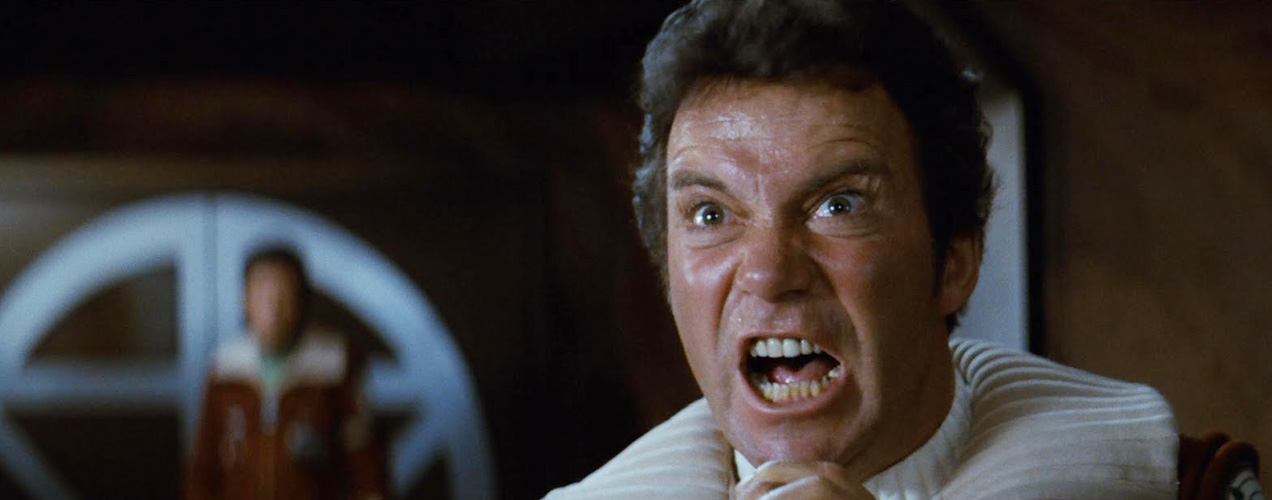
Star Trek II: The Wrath of Khan
1982 / Nicholas Meyer > A lot has been said about The Wrath of Khan, but mostly that it stands, on its own, as the best that Star Trek has to offer. So, do we view the film as a movie in its own right or contextually as a Star Trek, sci-fi genre piece? Ultimately, it depends on tone. When a film follows genre thematics, it should be blessed in a similar light. But when it jumps the rope into competition with anything and everything, a whole slew of additional criteria come into factor. The Wrath of Khan attempts the latter, but doesn’t do it particularly well.
There’s a certain level of Star Trek lore one needs to know to fully appreciate the context of Khan, a character who had previously appeared in an episode of the original series some time ago. Not knowing the backstory doesn’t exactly hurt, but it does mitigate his “wrath” factor. The film, though, is broader than its title. It’s really about the characters—How’s Captain Kirk? What’s Spock up to? Again, all this requires some elementary knowledge of the players. Most of us have grown up to some degree with these characters amongst our midst, but often a lot of our peripheral knowledge comes off of caricatures in mainstream media (think Saturday Night Live, et al). Thus, the gravity of the storyline doesn’t hit home, and viewers like myself are left wondering what the big deal is. Essentially, it fails to resonate because its seriousness isn’t backed up by greater context, and its finale tries to touch upon aspects that a fan familiar with the world would appreciate considerably more.

Norwegian Wood
2010 / Anh Hung Tran > In Norwegian Wood, Haruki Murakami crafted the college years of Holden Caulfield—a spirit of universal self-identification that made the novel a cult favorite for those who felt something was missing in their lives. It broke through traditional boundaries and expectations of love and set many of us upon a quest to find our own Midori. But I’ve not found her in Tran’s adaptation. In her portrayal, Kiko Mizuhara is too sweet. The bite that gave Midori her allure just isn’t here. And that, in itself, is a failure that I cannot look past.
Those who haven’t read the novel may like—and even love—Norwegian Wood. With elegant, graceful panning shots, the cinematography is exquisitely done by In the Mood for Love’s Mark Li. The score, by Radiohead’s Jonny Greenwood, is haunting but lovely and works in-step with Li’s cameras. And Anh Hung Tran is still, by consensus, considered the best director to ever come out of Vietnam. The attention to detail Tran brought to the project is evident in nearly all aspects of the film, but ultimately, the issue is one of (mis)interpretation.
This is where it falls apart for those who cherish the book. The film simply fails to capture the wonder of Toru Watanabe, the way he’s an everyman. There’s simply too much focus on his relationship with Naoko wherein I’ve always considered his relationships with Midori as well as Nagasawa—who effectively works as a foil—to be more important. Lost amidst this is the most beautiful and tragic character of all: Hatsumi. What I’ve always considered my favorite passage (includes minor spoilers) is a passing narration. For some, this won’t matter, but for me, this was the ultimate dealbreaker. As far as I’m concerned, no adaptation of Norwegian Wood can succeed without Hatsumi’s poignance.
All in all, Norwegian Wood can be affecting, but it’s more of a rumination upon the book: A lot of set pieces and lingering looks while lacking the work’s full, transformative power. But for obsessive Murakami fans, it’s also possible that this is the best adaptation we’ll ever get.

The Skin I Live In
2011 / Pedro Almodóvar > Almodóvar revels in complex storytelling, and there’s also a kind of magic that emanates from his characters who generally make the journeys quite compelling. But The Skin I Live In fails on both fronts: Not only do we not care about anyone, the plot also feels flat, dated and reaches for an understanding that is too obvious, too easy and too cute. While we do get one of those subtle twists that the director is so keen on, it’s not one that really satisfies. Instead, it comes off awkward, lazy and arguably unnecessary. These combinations lead to what is, to date, the most unsatisfying experience from the acclaimed filmmaker. While 2009’s Broken Embraces was a very enjoyable homage to the classic telenovela, his overall quality of output has been decreasing since the excellent Talk to Her in 2002. One could even argue that, though he tries to show otherwise, he has become safe.

Hugo
2011 / Martin Scorsese > As both an elegy and a celebration of cinema, Hugo is wonderful. But as a composition, the film meanders into side stories of no real consequence without ever fully realizing its promise to the audience: The adventure simply does not satisfy. Once again, Scorsese’s biggest weakness remains glaring: The man’s oeuvre is filled with by-the-numbers storytelling (often with stunning—and dependent—set pieces) that work because the stories themselves are very tightly constructed to begin with. This one isn’t. While the heart is warmed in the manner a family film ought to, the editing lacks a certain tightness to genuinely enthrall us all the way through.
Then there’s the 3D: Many have suggested Scorsese’s utilization of the technology is the best to date, including James Cameron himself. But aside from some of the glowing 1920s Parisian scenery and the gleeful finale that only the most hardcore of film enthusiasts will really appreciate, the additional dimension adds little to the experience. It is a technology that has once again failed to justify both its box office premium as well as the bulky, uncomfortable accessory it depends on.

